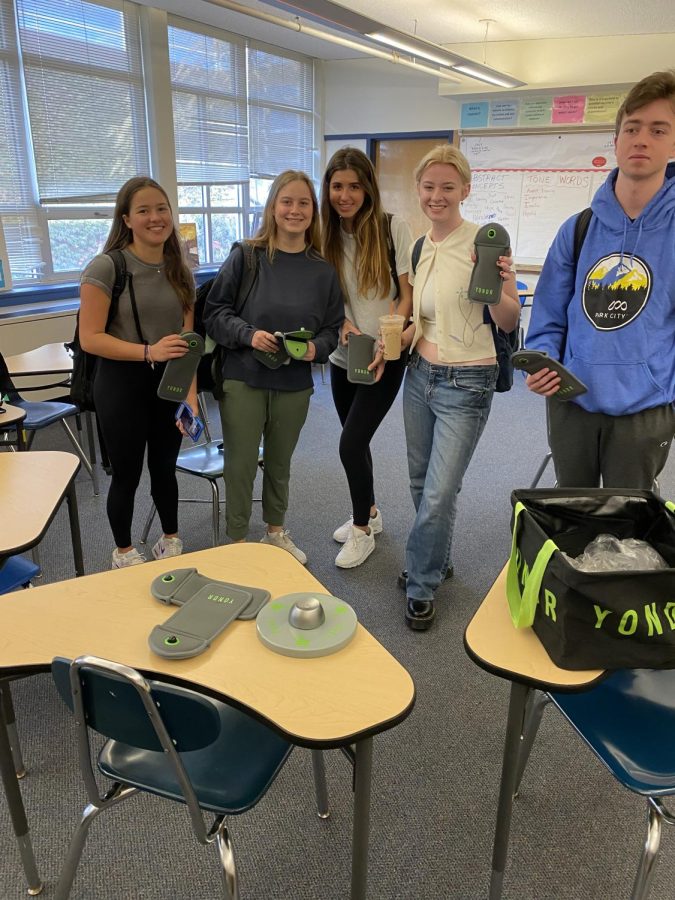The Yondr pouches have arrived…
SHS juniors are getting way out of their comfort zone
SHS juniors Elizabeth Kurtz, Emmy Curtin, Katerina Guyette, and Charles Holden are among a group of students voluntarily locking up their cell phones during the school day
November 9, 2022
This week, Scituate High School juniors are eager to begin the tasks associated with their personal credo projects. A credo is a statement of the beliefs or aims that guide someone’s actions. During this two-week-long project, which is considered a rite of passage among SHS juniors, students are challenged to try something new–possibly an activity that promotes a healthier mindset. Many students engage in daily meditation, reading, or physical exercise. After the two-week “experiment,” students write about their experience and develop a “personal credo statement.”
This year, AP Language and Composition teacher Catherine Hall was inspired to bring a new aspect to the project: After seeing a segment about Yondr cell phone pouches on the Today Show, Hall emailed the company and requested pouches for students who would be interested in experiencing school without the use of their cell phones. After learning more about the opportunity through a meeting with a representative from Yondr, 40 SHS juniors decided to give it a try. Using Yondr pouches to store their phones during the school day, these students will document their experience for the next two weeks.
Although the SHS personal credo project promotes the idea of getting out of your comfort zone, students in Hall’s English classes think this year’s Yondr experiment will take them way out of their comfort zone. As an example, junior Natalie Naylor claims to be “attached” to her phone, admitting she “uses it constantly throughout the day to check social media and text friends.” Before putting her phone in the Yondr pouch for the first time, Naylor gave her phone a quick kiss goodbye.
Scituate High School is the first school in the entire country to request this type of voluntary project. According to Matt Army from Yondr, students are not usually initially enthusiastic about using phone pouches, as the Yondr system is typically required at their school. SHS juniors are volunteering to use the product see how their experiences at school differ–many are are especially curious about their ability to focus without the regular distraction from their phones.
Several SHS juniors openly expressed their opinions regarding the Yondr pouches the day they arrived. Many were concerned with the drastic changes they were going to endure without access to their phones. Junior Parker Hausmann said, “I use my phone to check the class rotations, find out when club meetings are, and stay updated about my sports schedule.”
To access their phones at the end of the school day, students will go to Hall’s classroom, where they will use a magnetic device that unlocks the Yondr pouch. With the project start date of November 7th, Hall said she is very interested to hear the opinions of students who are participating. According to Hall, these students are keeping journals, tracking their daily level of energy and engagement, and participating in focus groups to share their experiences. At the end of the project, students will compose formal arguments capturing the positive and negative aspects of restricting students’ cell phone access in high school.
For more information on Yondr, check out their website: https://www.overyondr.com/
